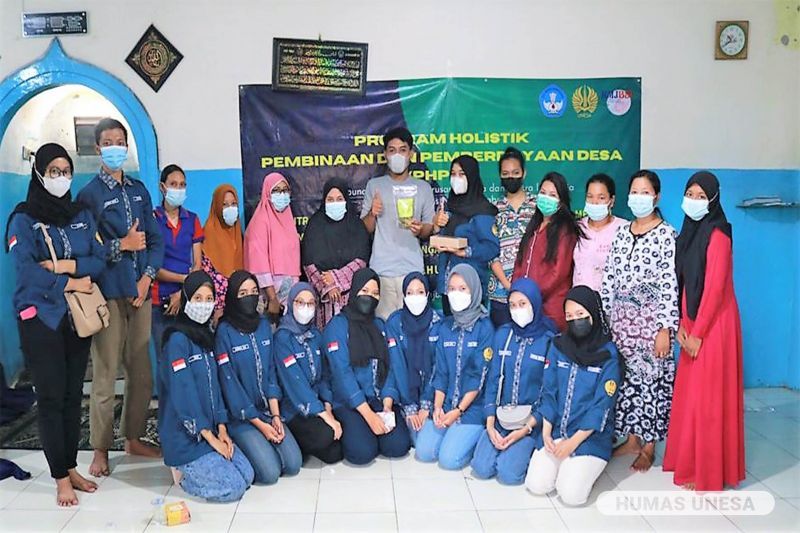
www.unesa.ac.id
Unesa.ac.id, SURABAYA-Indonesia is one of the largest waste-generating countries in the world. In just one day, citizens of “plus six two” can produce around 175,000 tons of waste. Meanwhile, annually, in 2020 it produces 67.8 tons of waste. Of that amount, The National Plastic Action Partnership (NPAP) noted that there are 4.8 million tons of unmanaged plastic waste every year.
The numbers are quite fantastic and need a solution to overcome them. Of course you can't walk alone and you have to collaborate. That is what HMJ Indonesian Language and Literature UNESA is trying to do through the Holistic Program for Village Development and Empowerment (PHP2D). They synergize with the residents of 1001 Malam Village, Dupak Village, Krembangan District, Surabaya, using plastic waste as a hydroponic medium. The direction later is to create a hydroponic spinach center in the village.
The chairman of PHP2D, Oktaviani Tri Saprika stated that the program will run from August 2021 to December 2021. During the program, his party collaborated with the ranks of the local sub-district government, including youth organizations, RPM Krembangan, ACT MRI, social services, trade and MSME offices and various partners other. His job is to manage and manage plastic waste into hydroponic media for spinach plants. The resulting spinach can later be used as vegetables or other processed foods. "We want to make the hydroponic spinach center a center for the economic development of local residents," he said.
He hopes that with this program, plastic waste can be reduced and can be managed creatively and innovatively by residents and young people. In addition, it can encourage the realization of Kampung 1001 Malam to become a hydroponic center that can meet local food needs. "If you need spinach or processed spinach, don't just buy it outside, but it's already available inside the village itself and the result of the sweat and creations of the residents themselves," said the student of the Indonesian Language and Literature Study Program.
PHP2D is a program 'made' by the Directorate of Learning and Student Affairs, Ministry of Education, Culture, Research and Technology. which aims to advance the village through the important roles of students in each university. The program is a community development and empowerment activity carried out by students through student activity units (UKM) or student executive institutions (BEM).
Deputy Dean for Student Affairs and Alumni, FBS UNESA, Syafiul Anam, S.Pd., M.Pd., said that he appreciated the collaboration of students and residents and for the success of students who passed the PHP2D program. Of the tens of thousands of proposals submitted to the Ministry of Education and Culture, only 500 proposals were funded and in it there were two student organizations from FBS Unesa that passed, namely HMJ Indonesian Language and Literature and DPM FBS UNESA. "Keep the spirit of working and collaborating to build villages and communities that are more empowered, competitive, and prosperous," he said encouragingly. [UNESA PR]
Share It On:






